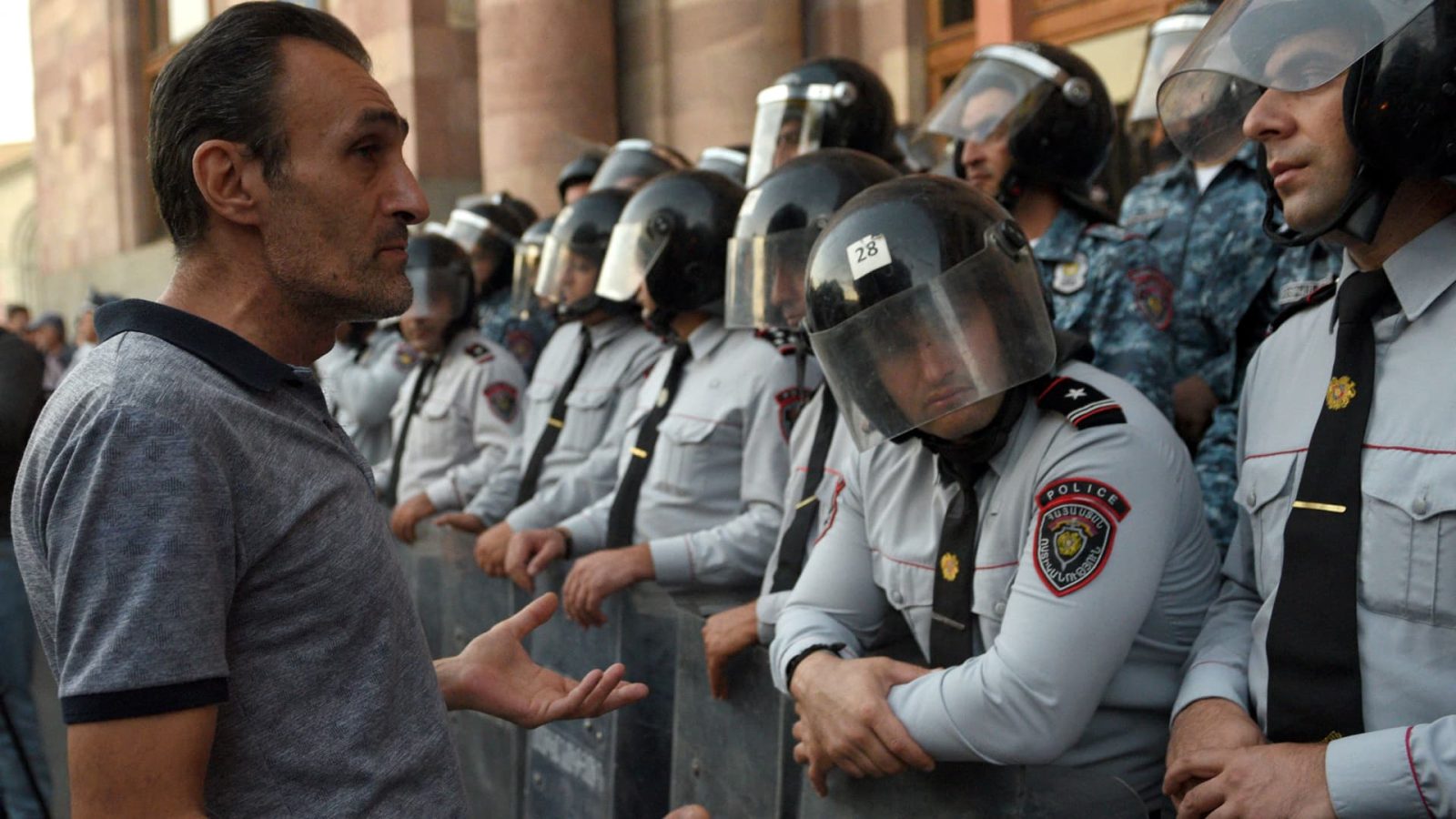A short-lived military operation in the disputed Nagorno-Karabakh region appears to have paved the way for Azerbaijan to take full control of a breakaway enclave that has endured more than three decades of conflict.
The latest-flare-up in Azerbaijan-Armenia tensions thrusts an often-overlooked conflict back into the global spotlight and dramatically ratchets up fears of major unrest throughout the Caucasus.
The contested mountainous region of Nagorno-Karabakh is internationally recognized as part of Azerbaijan, but it has been under de-facto Armenian control since the early 1990s.
The landlocked South Caucasus territory declared independence from Azerbaijan in 1991 and, with the support of Armenia, has fought two wars with Azerbaijan in the space of 30 years. The Nagorno-Karabakh region is currently home to an estimated 120,000 ethnic Armenians.
Talks on Thursday between ethnic Armenians from Nagorno-Karabakh and Azerbaijan came to an end without a final agreement, Russia’s RIA news agency reported, citing the ethnic Armenian’s representative. Further talks are expected to take place in the near future.
It follows an abrupt 24-hour offensive by Azerbaijani forces on Tuesday that swiftly broke through ethnic Armenian lines, seized strategic positions and resulted in the surrender of separatist forces.
Azerbaijani President Ilham Aliyev declared in a speech to the nation on Wednesday that “Karabakh is Azerbaijan,” saying that the military operation had succeed with an “iron fist.”
Armenia, which has typically looked to Russia as a security guarantor, said Azerbaijan’s military operation was an attempt to ethnically cleanse Nagorno-Karabakh, a charge Baku has denied.
Armenian authorities in Nagorno-Karabakh accused Azerbaijan of violating a cease-fire agreement, with Reuters reporting gunfire could be heard in the region’s capital on Thursday. Baku has rejected this allegation as “completely false.”
Armenian Prime Minister Nikol Pashinyan has faced calls to resign over the surrender of Nagorno-Karabakh’s authorities, with thousands of people on Wednesday taking to the streets of the Armenian capital Yerevan to condemn the government’s perceived failure.
Yerevan’s decision to remain on the sidelines during the military operation came at a time when Armenian authorities lacked the backing to engage directly with Azerbaijan, which enjoys military superiority and has stronger backers.
Analysts told CNBC that Pashinyan’s grip on power was being “weakened by the minute” over the Nagorno-Karabakh crisis, particularly given that the prime minister does not appear to enjoy either internal or external support.
“For a very long time, it was a war that was ignored by many,” Tinatin Japaridze, a Eurasian political risk analyst at political risk consultancy Eurasia Group, told CNBC via telephone.
“There were flare-ups here and there over the last couple of years, with the most recent flare up a couple of days ago being the most obvious signal that the chances of returning to a war are potentially going to be imminent if proper peace talks do not take place,” Japaridze said.
Russia’s role in the crisis
For decades, Armenia has relied on Russia as a security guarantor. However, authorities have grown increasingly frustrated with what it sees as a lack of willingness from the Kremlin to support the country.
Russia, alongside Armenia, is a member of the Collective Security Treaty Organization. Formed in 2002, the Moscow-led security bloc is an intergovernmental military alliance composed of six post-Soviet states. Like NATO, the CSTO is based on the principle of collective defense, meaning that an attack on one member is recognized as an attack on all members.
Armenia’s prime minister suggested earlier in the year that Yerevan was considering withdrawing from the CSTO due to a lack of support from Russia. More recently, Pashinyan admitted that it had been a strategic mistake to depend solely on the Kremlin to guarantee the country’s security.
“Russia is Azerbaijan’s partner in this situation. Their main interest is to gain access to regional logistics, which will be unblocked after Karabakh returns to Azerbaijan,” Iliya Kusa, an international relations analyst at the Ukrainian Institute for the Future think tank, told CNBC via email.
Kusa said he believes Moscow also expects that the loss of Nagorno-Karabakh to Azerbaijan will trigger political turmoil in Armenia, potentially leading to Pashynian’s departure from office.
“Moscow is interested in replacing him with any other loyal figure from the opposition camp, which would further consolidate Russia’s control over Yerevan, which had been weakened in recent years by Pashynian’s attempts to reach out to the West and by the war in Ukraine,” they added.
The Russian Embassy in London did not immediately respond to a request for comment.
The Kremlin has rejected any suggestion that Moscow had not done enough to prevent fighting in Nagorno-Karabakh and says it is in close contact with Azerbaijan, Armenia and ethnic Armenians in the disputed territory.
What next?
The Institute for the Study of War, a U.S. think tank, said Russia’s role as a security guarantor for Armenia may be declining as the Kremlin continued to prioritize its full-scale invasion in Ukraine and as authorities in Yerevan increasingly expressed their dissatisfaction with Moscow.
The ISW said Wednesday that Russian military bloggers also appeared to lament Moscow’s waning influence in Armenia.
Eurasia Group’s Japaridze said the outcome of peace talks between Azerbaijan and the Nagorno-Karabakh authorities was likely to determine what happens next.
“It will be very interesting to see what happens internally in Armenia, politically speaking, with the Pashinyan leadership and whether or not he survives this. And then the other thing I would watch is to what extent will the West be able to intervene.”
Referring to the options available to the U.S. and European Union, Japaridze said there did not appear to be much that they could do, aside from calls for an immediate de-escalation and publicly condemning military action.
The prospect of sanctions against Azerbaijan should be seen as “very unlikely,” she added.
Read the full article here












Leave a Reply